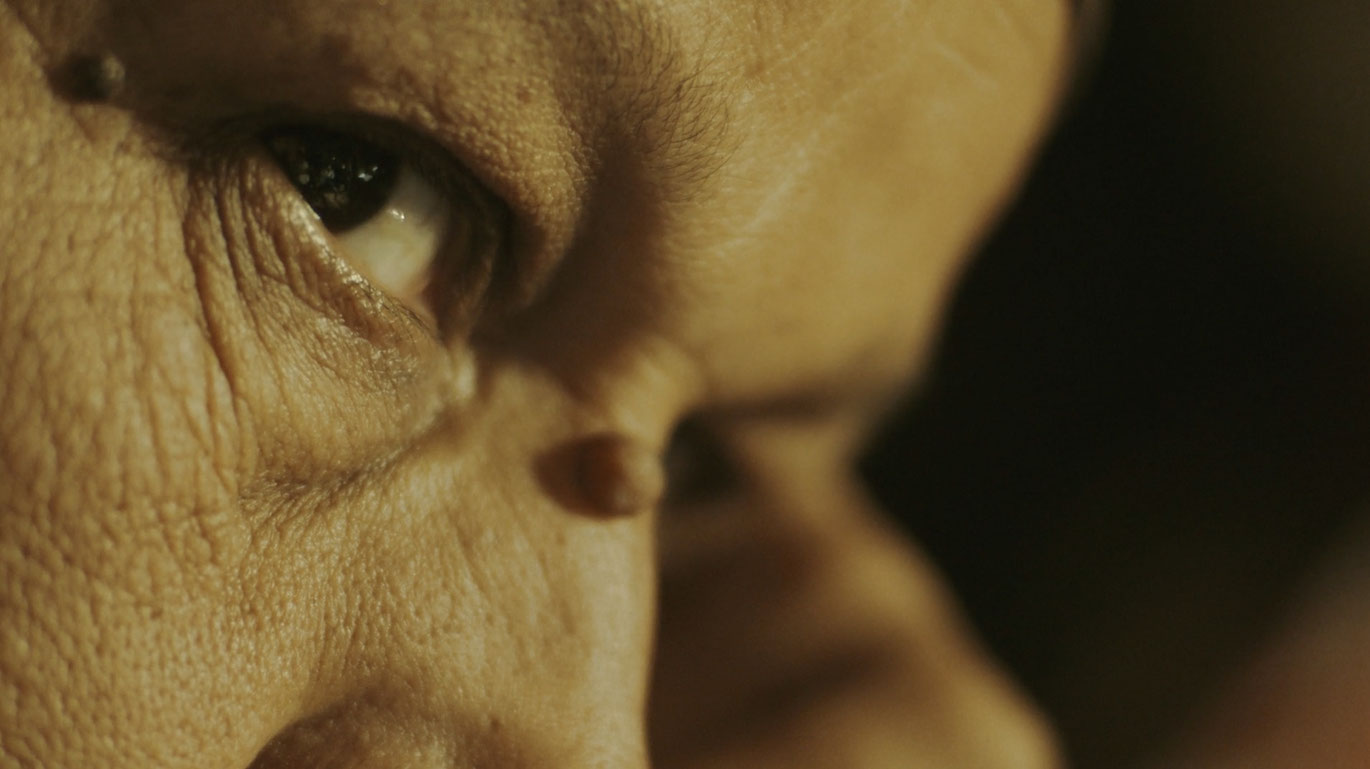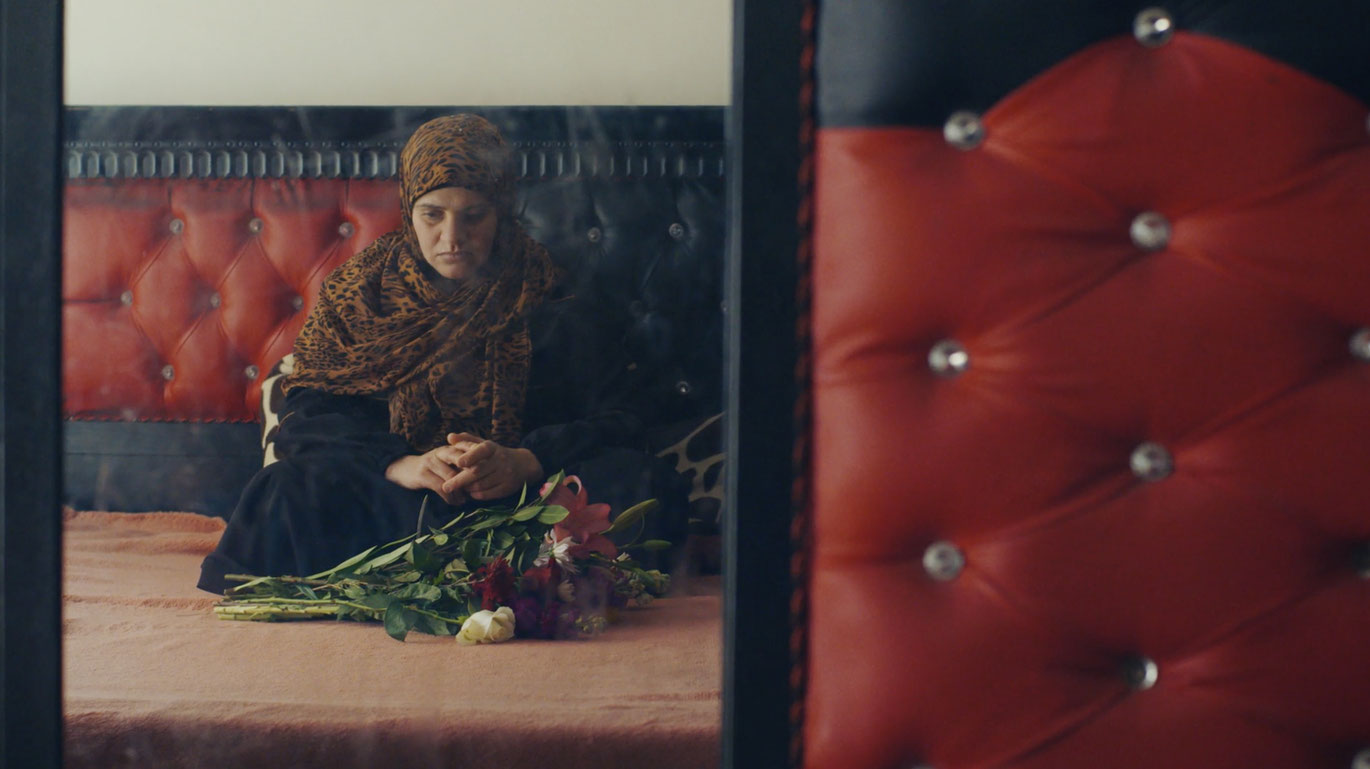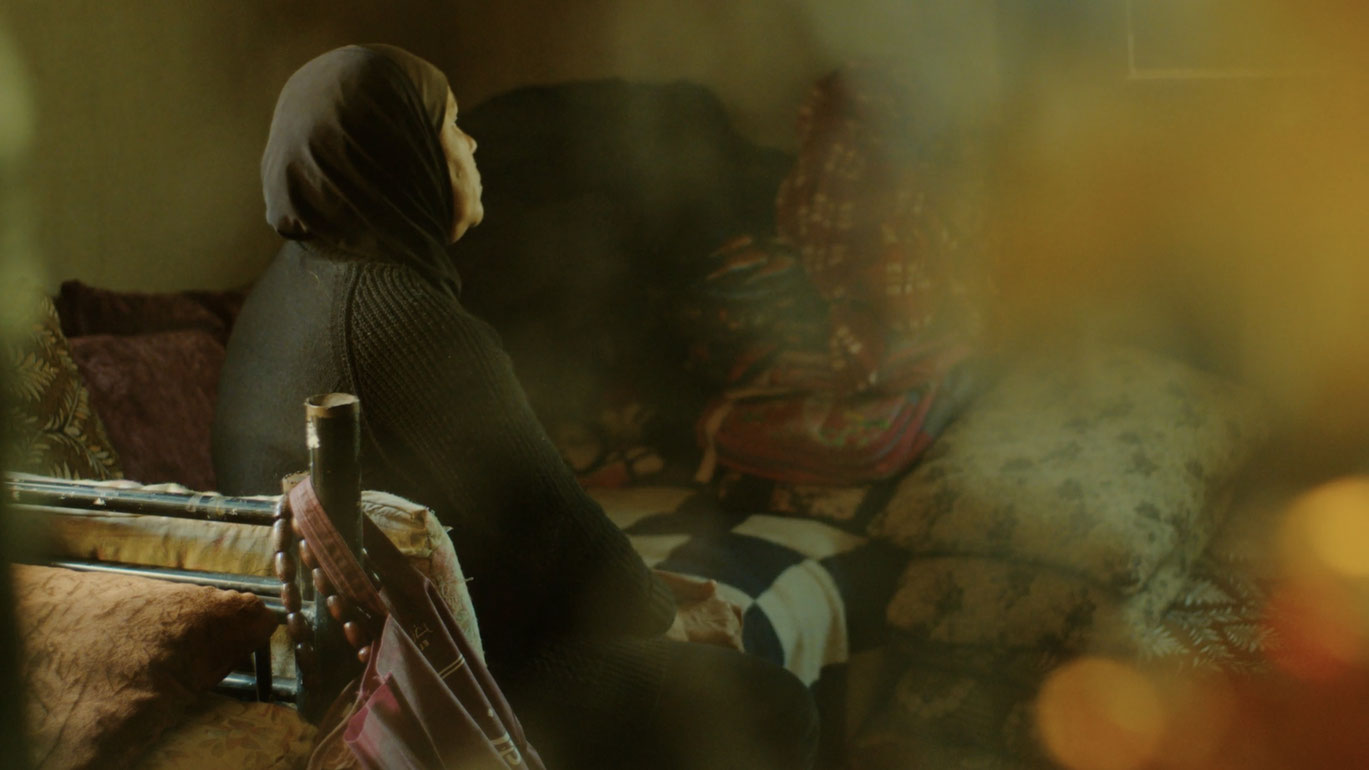ANQA
ANQA is an intimate portrait of three women who decide to stand up and speak out, who declare that they exist despite the threat of death. It is an exploration of a woman’s inner life and in its most extreme, of the painful traces memory carries when the outer world is at an impasse. Although the film places emphasis on the inner conflicts of the women, the socio-political climate of the era they live in is also tangible. The narration subtly ties together the crisis of thought in confrontation with misogyny and systemic, patriarchal violence, revealing the inextricability of political and social life from the life of the individual.
Taking the daily lives of its characters in isolation as a starting point, the film revolves around the themes of life, death, and the trauma that connects them. It disguises the details of the brutal crimes these women have experienced, and instead rather focuses on their present lives in all its complexity and confusion, as they fight for survival and to reclaim their existence. The film’s position is one that consciously chooses to not reproduce violence, thus reconstructing existing narratives in an aspiration of cinematic justice.
ANQA creates a fragile space for the spectator to immediately dive deep into the inner landscapes of these three women. It makes possible an encounter with another person through exposure to their wounds, as witnesses to their present, frighteningly close struggle between life and death. For this reason, trauma operates not only as the repository for one’s personal wounds, but enables a means of sharing, a way to communicate that history with another. (Helin Çelik)
A small gas stove ignites and provides warmth. In Helin Çelik’s ANQA, a history of violence, biographies of women, and the depiction of a personal “safe zone” are closely interwoven. The “safe zone” are apartment spaces in which three women from the Middle East, who have experienced abuse and domestic violence and who have radically rebelled against it, have finally found quietness. This is a quietness, however, marred by traumatic memories. The protagonists sketchily describe impressions of their unfortunate experiences and the associated feeling of hopelessness that sometimes still haunts them at night. But their situations also caused them to take actions that excluded them from their social communities. They were called “crazy” and “the remains of a woman”. In the narrative’s being limited to fragments, their lives, their survival, becomes palpable and understood as hard-won – their stories need not be reproduced in specific detail.
At the same time, Çelik describes a space from which they can escape the “coldness” that still “afflicted a woman under the sun”, this “underground feeling”. Raquel Fernández Núñez's camera gets close to the faces, but also captures physical affections, details of hands or feet touching each other. The interiors are continually shown in warm colors; the wall hangings and curtains, which in one scene are first drawn across a kitchen front, counteract the recapitulation of the past. The fabrics are not smoothed out, however – creases and hard cut edges remain. There are surreal disturbing moments: ANQA does not describe a false sense of security, but creates a poetic associative space in which the “care” activities of the women still bear witness to the ambivalence they feel towards life. (Dominik Kamalzadeh)
Ethnocineca 24 - Jury-Statement dt & en (Award)
Ethnocineca 2024 Jurystatement ADA
Jury: Frederike Sperling, Catrin Seefranz, Georg Vogt
deutsch: Alle nominierten Filme beschäftigten sich in anregender und elaborierter Form mit zentralen Fragestellungen unserer Zeit, insbesondere mit dem wichtigen Thema Care oder auch Flucht und Vertreibung aus verschiedenen Perspektiven. Sie boten umfangreiche Vorarbeiten und zum Teil umfassende Langzeitbeobachtungen und Recherchen, die wir mit großem Gewinn gesehen haben.
Wir haben uns letztendlich mit größter Übereinstimmung dafür entschieden, den Austrian Documentary Award an den Film "Anqa" (2023) von Helin Çelik zu verleihen. "Anqa" ist ein eindringlicher Beitrag zum Genre des Dokumentarfilms als Kunstform, in dem mit allen Mitteln klug und gekonnt eine Idee der Multiperspektivität entwickelt wird. Die Cinematographie etabliert auf vielen Ebenen einen Raum, in dem Trauma eine Repräsentation findet, ohne dabei dem Voyeurismus oder der Ausbeutung zu verfallen. Die Fragmentierung als zentraler Mechanismus des Traumas wird zum bestimmenden Prinzip der filmischen Arbeit. Wir sehen scheinbar banale Routinen des Alltags, die Ordnung und Beruhigung, mithin Nähe und Zärtlichkeit bergen, die aber jederzeit ins Abgründige und Gewaltsame kippen können. Die Potentialität der Katastrophe (die in dem Entflammen des Gasherdes oder dem Rotieren des Ventilators lodert) ist in Verbindung mit den Partikeln der Traumata, von denen wir erfahren, omnipräsent. Von einem Safer Space kann aus unserer Sicht nicht die Rede sein, aber von einem kinematographischen Raum, der bestimmte Formen der Begegnung ermöglicht. Die Agency liegt ganz klar bei den Protagonistinnen, die nicht auf ihre Opferrolle reduziert werden und selbst mitunter komplexe, ambivalente Handlungen zu verantworten haben. Und so rückt dann auch die abschließende Sequenz des Films das diesjährige Thema des Festivals, "Re-rendering Perspectives", entsprechend ins Licht: "I'm not the remains, I exist", stellt eine der Frauen klar.
Jury statement ADA, english
All the nominated films dealt with central issues of our time in a stimulating and elaborate way, in particular with the important topic of care or fleeing and displacement from different perspectives. They offered extensive preparatory work and in some cases comprehensive long-term observations and research, which we watched with great pleasure.
In the end, we decided with the greatest consensus to award the film "Anqa" (2023) by Helin Çelik with the Austrian Documentary Award. "Anqa" is a haunting contribution to the genre of documentary film as an art form, in which an idea of multi-perspectivity is cleverly and skilfully developed. On many levels, the cinematography establishes a space in which trauma finds representation without succumbing to voyeurism or exploitation. Fragmentation as the central mechanism of trauma becomes the defining principle of the filmic work. We see seemingly banal routines of everyday life that harbour order and reassurance, and therefore closeness and tenderness, but which can tip over into the abysmal and violent at any time. The potential for catastrophe (which flares up in the flames of the gas cooker or the rotation of the fan) is omnipresent in connection with the particles of trauma that we experience. From our point of view, we cannot speak of a safe space, but of a cinematographic space that enables certain forms of encounter. The agency clearly lies with the protagonists, who are not reduced to their role as victims and who themselves are sometimes responsible for complex, ambivalent actions. And so the film's concluding sequence puts this year's festival theme, "Re-rendering Perspectives", into perspective: "I'm not the remains, I exist", one of the women states clearly.
Oslo Mirage Documentary Film Festival: Best Cinematography ANQA (Award)
Oslo Mirage Documentary Film Festival 2023: Best Cinematography ANQA (Raquel Nuñez)
Mátyás Erdély jury statement reads as follows:
I just had the privilege to watch four extraordinary films.
Each of them beautiful in their own way.
The way the filmmakers treated the people in front of the camera. The sensibility with which they approached them.
Coming from the world of narrative filmmaking what we are aiming for is to create truthful moments, scenes and characters. We want to create images that are made with the outmost care and empathy. All of these films were heartbreakingly beautiful and achieved what only the best of cinema can achieve:
It made me care about these people in a profound way. The hardships of the village people of El Eco, the determination of Zoe Lucas of Sable Island, the traumas of the women of the smoke sauna and the suffering of the three women in Jordan.
I found all four movies very IMPORTANT films. Films we will refer to in years to come for their empathy and sensibility.
One film stood out for me with its boldness, in the way it formulated its own lyrical language throwing away everything unnecessary to focus on its characters like a laser beam.
Nothing fancy, nothing pretty.
Images that told the story as powerful as the images in the era of silent films.
Without hesitation, in full confidence in its approach. Brilliant filmmaking.
I would love to present the 2023 MIRAGE Cinematography Award to the film:
ANQA
Cinematography by Raquel Fernández Núñez
ARTE-Dokumentarfilm Preis Duisburger Filmwoche 2023 / Jury-Begründung (Award)
Duisburger Filmwoche 2023
ARTE DOKUMENTARFILMPREIS
Begründung der Jury ->>
Der Film erzählt sich wie ein Mosaik. Stück für Stück erschließt sich eine Situation, die ganz buchstäblich verkörpert wird. Einrichtung, Farbe, Räume, alltägliche Verrichtungen erscheinen aus einem übermenschlichen großen Ganzen heraus vergrößert zu sein. Visuell balanciert der Film dadurch eine notwendige Abstraktion und Distanz.
Denn die drei Frauen, die allmählich aus den Details hervortreten, haben ein Ausmaß an Gewalt erfahren, über das der Film nicht informieren möchte. Behutsam und kompetent richtet die Filmemacherin Helin Çelik ihre Fragen an ihren Protagonistinnen aus. Es geht um sie.
Intensiv erlebbar ist das Ringen um Worte und innere Bilder. Berührung und Berührtsein. Die übermächtige Erzählung der Traumata werden – ohne sich zu offenbaren – spürbar umgeschrieben. Ein Kraftakt.
Am Ende wird eine der Frauen erkennen und aussprechen: „Ich existiere!“
Jury: Enoka Ayemba, Christiane Büchner, Stefanie Gaus
ANQA
2023
Austria, Spain
91 min



